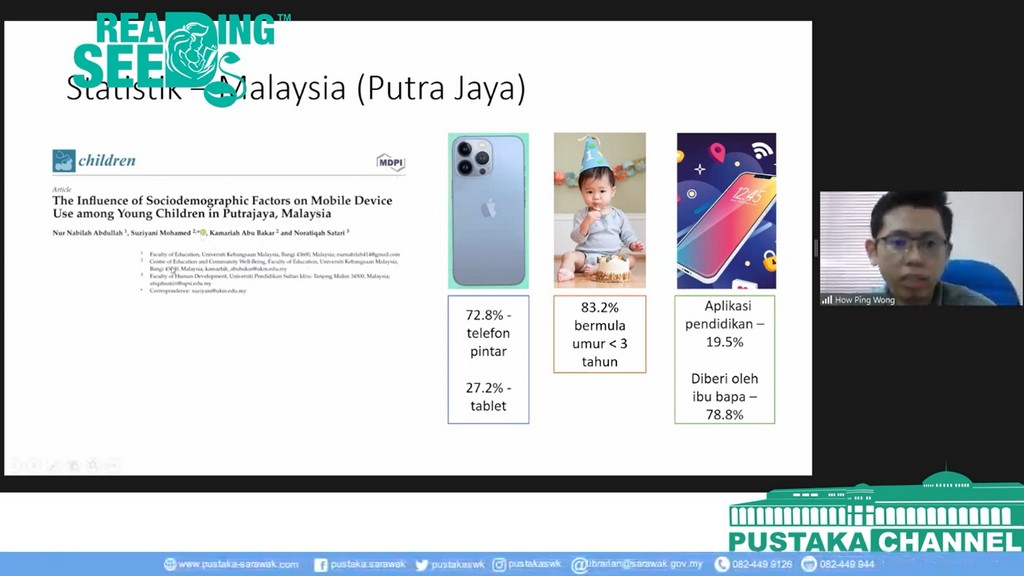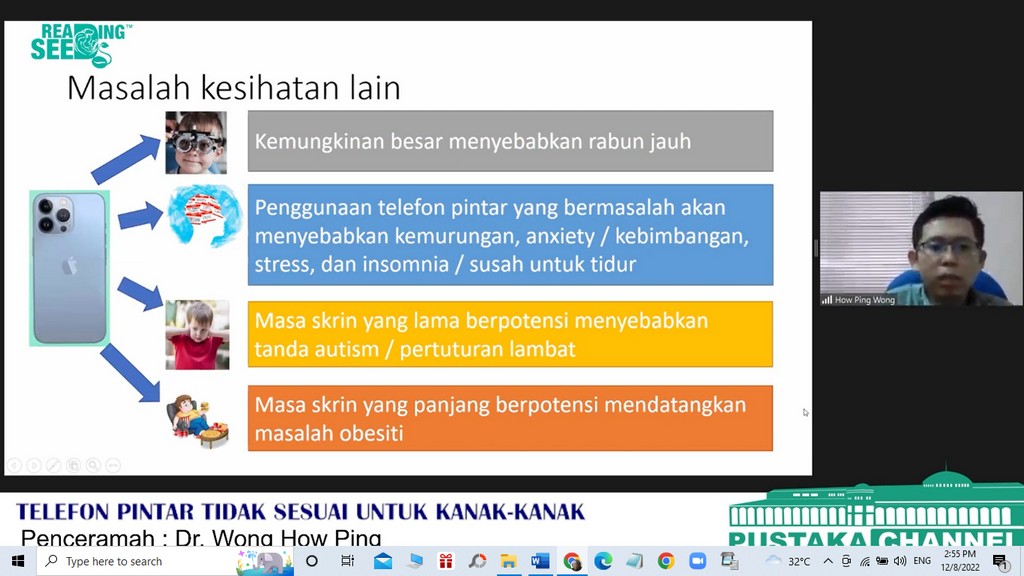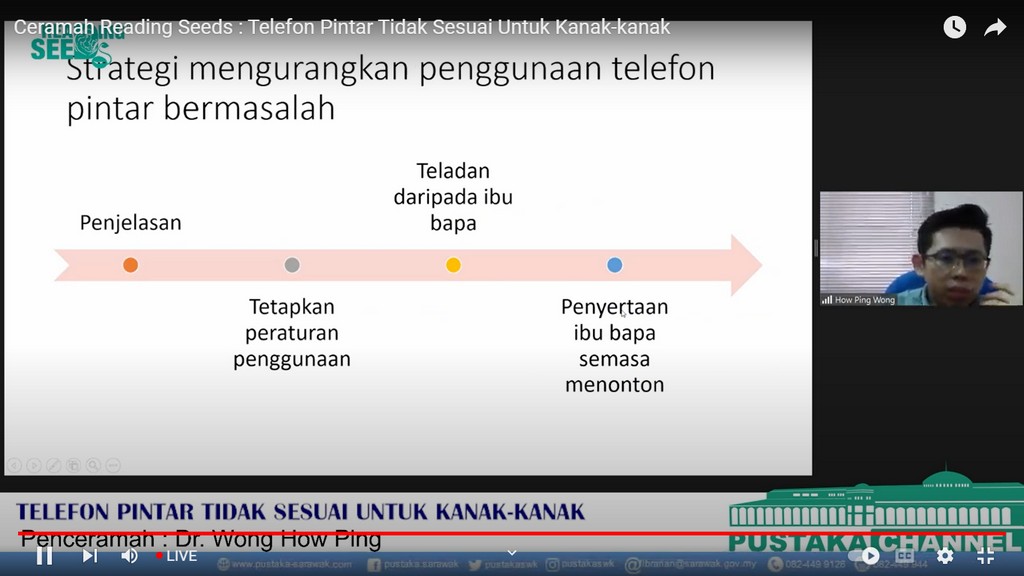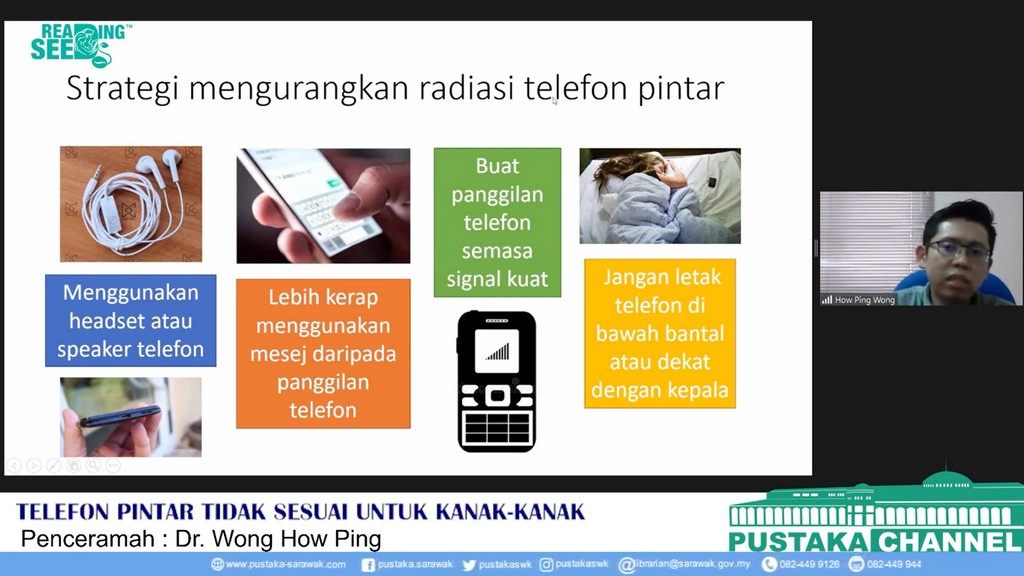Smartphones has the potential to cause addiction among children, especially those below three years old.
This was said by Dr Wong How Ping from Klinik Kesihatan Jalan Lanang during a webinar ‘Telefon Pintar Tidak Sesuai Untuk Kanak?’ that was held online on 12 August 2022.
In explaining this, Dr Wong said that the human brain can only reach full maturity at the age of 25.

A part of the human brain called the prefrontal cortex which functions to control one’s impulses as well as behaviour.
Hence, Dr. Wong said that due to overexposure to smart phones, children are unable to control their impulses and are easily addicted to usage of smartphones.

Explaining further, he then said that among the signs of children that are addicted to smartphones includes uncontrollable use of smartphones, being immensely preoccupied, disregard of other activities as well as continuous use despite the potential problems caused by overuse to smartphone.
During a question-and-answer session, one of the questions posed by the participants was how do parents control their children who are already addicted to smartphones.

To this, Dr. Wong said parents can reduce screening time on smartphones by stages.
For instance, parents can cut down screening time from two hours to an hour.
He explained it is nearly impossible to completely cut off usage of smartphone among children who are already addicted as they can exhibit uncontrollable behaviours such as crying.

Dr. Wong also suggested that parents may also give their children choices on how much time they can spend using their smartphones.
“By doing so, you (as a parent) are actually showing respect to your children by showing that they can make their own choice instead of instructing them to follow what you say,” he said.
Other than that, Dr. Wong also suggested that parents can distract their children with other activities such as playing boardgames, spending time doing leisure activities such as taking a walk or read them books.

He also noted that having a messy house due to children doing more activities apart from looking into smartphones, it is actually a healthy sign to children’s development by learning.
“Hence, I urged parents to not be angry with their children if they mess out the house because it means they are spending more time doing something else apart from looking at their smartphones,” said Dr. Wong.
Thus, Dr. Wong ended his talk but concluding that children below three years old are not suitable for smartphone usage and the screening time for smartphone for children should be limited to be under two hours.





